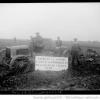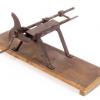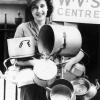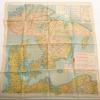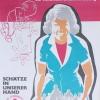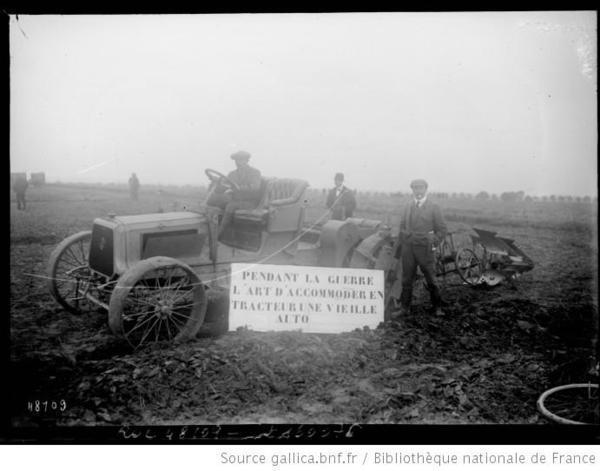The Great War creates new campaigns
In spite of precautions taken by governments, the onset of the Great War meant that shortages affected societies on all sides of the conflict. Blocked borders, maritime blockades, and attacking submarines all meant that imports of many crucial supplies were unreliable at best. Propaganda campaigns carried out in European countries affected by war were aimed at women and children who, by helping to overcome the shortages, could actively take part in the war effort, supporting men fighting on the front. Campaigns to preserve resources were common in European countries. In 1915, British women were shaking out flour-sacks in the Hay Reserve depot in Richmond and many other cities in England. At the same time, German schoolchildren gathered copper toys and kitchen appliances at special collections held in schools. Copper was needed for the manufacture of bullet casings. The "waste not, want not" strategy and the collection of metal and other materials to replenish supplies for the war industry reflected the policy of autarky.

How to cite this page
Slawomir Lotysz, 'The Great War creates new campaigns', Inventing Europe, http://www.inventingeurope.eu/story/the-great-war-creates-new-campaigns
Sources
- Hichens, W.L. “Labour Economy.” Journal of the Royal Society of Arts 65, no. 3370 (June 22, 1917): 545-548.
- “Saving in the Home. The Queen at Economy Exhibition.” The Times, June 27, 1916: 5.
- Hardach, Karl. The Political Economy of Germany in the Twentieth Century. Berkeley: University of California Press, 1981.





